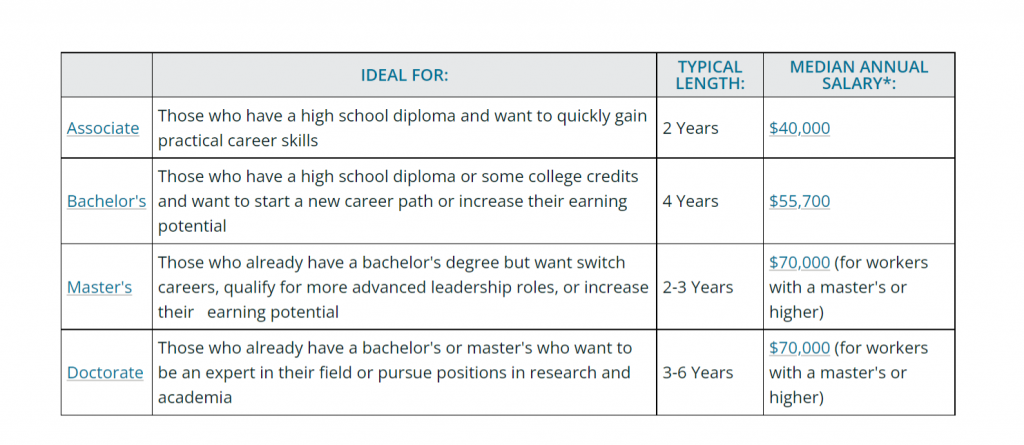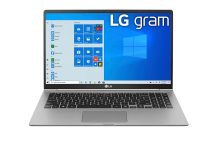the top online colleges and universities for 2022. Read on to compare schools based on affordability, flexibility, and academic quality. Find your path forward today. A massive motive for the growth in online education and online universities is demand. Online degree programs make university extra available to a much large population than regular on-campus options. Thanks to technology, you can earn a totally online undergraduate or graduate degree whilst balancing academic commitments with different responsibilities, such as a full-time job or caring for your family.
How Do I Choose an Online College?
In the world of online education, there is no normal best online college or best online degree program. But there is a nice alternative for you. Ask yourself these 5 questions to start the search for the best online colleges and universities for your situation:
- What area of study interests you?
- What type of online degree do you need to meet your goals?
- What type of institution offers the degree program you need?
- How much flexibility do you need?
- How much can you afford to spend on an online degree program?
Choose an Area of Study
The first step is to assume what area of study you would like to pursue in order to meet your career goals. Different college majors educate special skills and have exceptional points of emphasis.
Examine the distinctive majors offered by means of a range of pinnacle online colleges that relate to the field of study you are interested in. Research what specific courses are required in every major. Also, reflect on consideration on what specific hard and soft skills will be most valuable to the work you prefer to be doing.
You can discover our collection of educational program rankings to research extra about the best online degrees in various fields of study.
Explore Our Guides to Online Schools By Degree Level

Flexibility
Online college courses come in a variety of formats, such as synchronous and asynchronous options, allowing students to choose a structure that works best for their learning style and lifestyle. Determine what kind of flexibility you’ll need in an online program by considering the common online course formats below.
| Synchronous | Students attend classes, view lectures, participate in group chats and conversations, and complete assignments according to a pre-set schedule or syllabus. |
|---|---|
| Asynchronous | Students are given regular deadlines for completing assignments, viewing or listening to lectures, and participating in group discussions, but they can complete these tasks at any time before the due date. |
| Open Schedule | Students can begin courses at any time, independent of a traditional quarter or semester schedule. Students must complete assignments at set points during the class based on their start date and discussion. Interaction with other students is usually minimal or lacking entirely. |
| Fixed-Time Online Courses | Students access all academic materials from a computer (no in-person meetings are required), but must log in to virtually attend and participate in class at specific times. |
| Hybrid | The majority of course materials and instruction are provided online and can be done remotely, but students are required to meet in person one or more times during the course. |
How Can I Pay for an Online Degree?
Earning an online college degree normally requires a vast investment. While some students select to pay for college out-of-pocket with the use of savings or family contributions, many want to are searching for financial aid to assist make college more affordable.
Some online schools also enable college students to pay for lessons and housing in monthly installments, as a substitute for paying one lump sum for every semester or quarter term. These deferred payment plans might also carry little to no interest, however, the stability should be paid off through the give up of every term.
What Do I Need to Apply to Online College?
Once you’ve decided on the best online school for you, you’ll need to take many of the same steps required to apply to an on-campus program. Make note of important deadlines and submission dates before starting the process so you’ll have time to prepare and collect the proper materials.
What You’ll Need
- Test Scores
- Letters of Recommendation
- Personal Statement/Essay
- Official Transcripts
Application
Over 1000 schools accept the Common Application. Students who fill in some basic information and answer a few school-specific questions can apply to multiple schools or universities at a time. Check to see if the online school you’re applying to accepts this type of application. If not, you can find the admissions application on your target school’s official website.
College Essay
Many applications require a long-form essay that addresses a general topic or creative prompt. Be sure to write multiple drafts of your essay to ensure it is free of grammatical errors, typos, and ambiguities. If the prompt is general, make sure to emphasize your academic, professional, and extracurricular experiences to demonstrate your value as a student.
Letters of Recommendation
You’ll likely need to submit at least one letter of recommendation with your application packet, so try and come up with a few good references who you can ask. Teachers, school counselors, and employers are all good resources to reach out to.
Official Transcripts and Test Scores
Undergraduate students are often asked to submit high school transcripts and SAT or ACT scores. Alternatively, graduate students may be asked to submit their undergraduate transcripts, as well as GMAT or GRE results, depending on their school and area of study.
What Can I Expect From Online College Courses?
While online learning courses have their very own special expectations, they share many of the equal components and objectives as regular in-person learning courses. Here’s what you can assume from online college courses.
Lectures
Specific requirements range with the aid of the program, however, most online students log into their school’s gaining knowledge of management system (LMS) to take part in online class lectures. Asynchronous learning programs allow students to view lecture recordings on their personal time. Alternatively, synchronous programs might also require students to watch live-streaming lectures. In some cases, synchronous courses feature video conferencing elements that enable students to ask questions and interact with their professors and fellow students.
Peer-to-Peer Interaction
Online coursework regularly features discussion boards the place students can communicate via written posts. Videoconferencing may additionally be available, and college students may also contact one another through phone, email, or social media to coordinate study sessions or work on crew projects. Additionally, students who stay shut to campus can coordinate in-person study organizations with their classmates.
Instructor Interaction
Individual online classes regularly feature a discussion board the place students can depart faculty questions. Many professors will additionally provide their private contact facts including email, phone, and social media to ensure their students can contact them if they have questions or concerns.
Assignments and Homework
The assignments and homework requirements for online college courses typically mirror on-campus classes. Depending on the subject, these assignments may additionally include crew projects, presentations, and lookup papers. Many online classes additionally require students to take part in team discussions on LMS boards. The LMS will function with precise drop boxes for individual classes and assignments.
Synchronous courses often follow a tight schedule. In contrast, asynchronous courses can also permit greater flexibility for assignments, although most nonetheless have weekly deadlines. Online college courses may additionally use online platforms, such as Pearson MyLab, which organize direction content into quizzes, tutorials, and different interactive materials.
Presentations
Online coursework can also consist of presentation assignments. In most cases, group members communicate and work on their projects thru discussion boards, email, or phone. The displays are typically delivered remotely, with the use of web conferencing tools like Blackboard Collaborate or Zoom. Videos may additionally be posted on websites like YouTube.
Tests and Exams
Quizzes for most online college courses have completed the use of the LMS. Tests and checks in online classes may additionally be proctored or monitored remotely. Proctored assessments normally require students to go to nearby trying-out centers, the place onsite proctors monitor test-takers. For absolutely monitored exams, the proctor can also observe the scholar the usage of a webcam. Some courses additionally use cheating detection software to screen the student’s web activity whilst taking the exam.
Best Online Colleges and Top Online Universities of 2022
- Fordham University.
- Syracuse University.
- Harvard University.
- American University.
- The University of Miami.
- The University of Arizona.
- Tufts University.
- Villanova University.





















